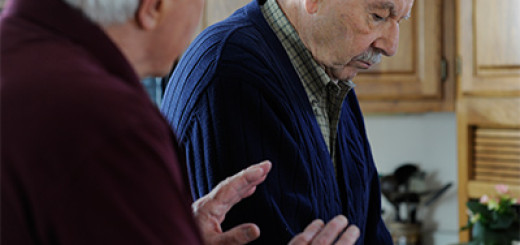Taking Care of You – Part 3: The Guilty You
Caregiving can be extremely rewarding, but all caregivers will eventually feel some degree of frustration, anger and guilt. These are all normal emotional responses to an incredibly emotional journey.
 As a caregiver, you may feel frustrated and angry at your chaotic life, or your lack of control over the disease’s progression. Anger often evolves into guilt. You may feel like there isn’t a light at the end of the tunnel, and have the guilty thought, “how much longer can this go on?” But understand, feelings can’t be denied. They can however be changed to some degree by adjusting your perspective; for example, you may feel less frustrated with your loved one’s acting out if you can remind yourself that they are not doing it on purpose, it is part of the disease.
As a caregiver, you may feel frustrated and angry at your chaotic life, or your lack of control over the disease’s progression. Anger often evolves into guilt. You may feel like there isn’t a light at the end of the tunnel, and have the guilty thought, “how much longer can this go on?” But understand, feelings can’t be denied. They can however be changed to some degree by adjusting your perspective; for example, you may feel less frustrated with your loved one’s acting out if you can remind yourself that they are not doing it on purpose, it is part of the disease.
Feelings can also be softened by certain self-care strategies. Journaling your feelings and daily relaxation techniques can be helpful. Identifying guilt triggers can also help. Does missing a child’s activity make you angry, with guilt setting in as you are later abrupt with your loved one? Maybe you need to find a Plan B so you can balance caregiving with your other roles. Respite is a great strategy to reduce guilt.
Are you feeling guilty about thoughts of sending Mom to a care home because you can no longer do it all? The thing you need to remember is that there is a difference between caring and doing. You may love. You may care. But at some point, sooner or later, you won’t be able to do. And you need to figure out a way to live with that. Those “unable to do moments” may come in increments; today you may need a respite day and decided to send your spouse to day-care for the day. A month from now, you may need to incorporate day-care twice a week in your caregiving calendar. All of that’s OK. The important thing is that you try and identify those points, those limitations you can’t get beyond, prior to actually being confronted by them.
So how do you do that? First, get support. Join a support group, if possible focused on the disease stage of your loved one. Participate in the AlzConnected online support forum and read everything you can. Share your feelings and gain others’ coping strategies. It will help. Another tip, live in the day; focus on any positives from that single day. Look for a sign of your loved one’s remaining personality – perhaps a smile in hearing music – and connect with that. Prepare for, but don’t dwell on the future. Don’t just grieve for all the losses, but reflect on the good memories, maybe by sharing a photo album with your loved one and others. Let go of unrealistic expectations. “I should never take time off to enjoy a movie with friends when it upsets Dad so much,” is just not realistic in the long haul.
Bottom line is to listen to your feelings and know they are normal. Focus on the helpful and positive differences you have made in your loved one’s life, not on the things you didn’t do. And remember, as the disease progresses and you find yourself no longer able to have your loved one at home, that isn’t giving up. It is just a different way of caring.
Make sure to practice the tips in the earlier, “The Mental You” and “The Physical You” posts, too!
Blog written by Alzheimer’s Association Volunteer Diane Blum


















Most excellent article! I can whole heartily agree with all the tips and the validation points of feelings you go through as a caregiver.